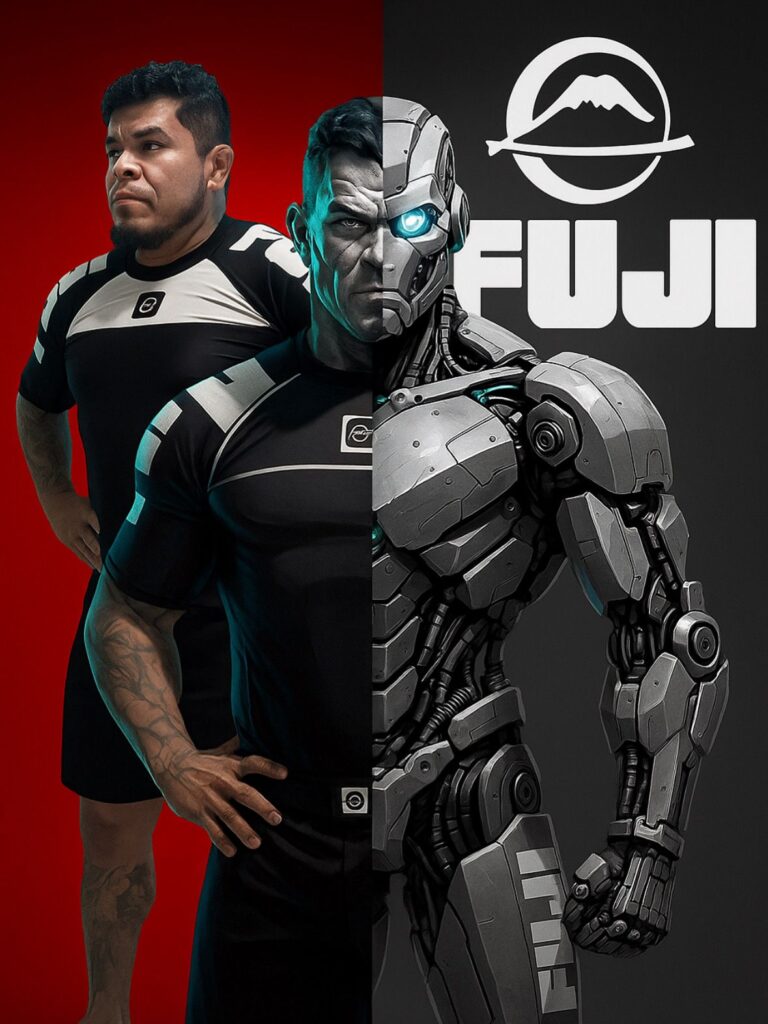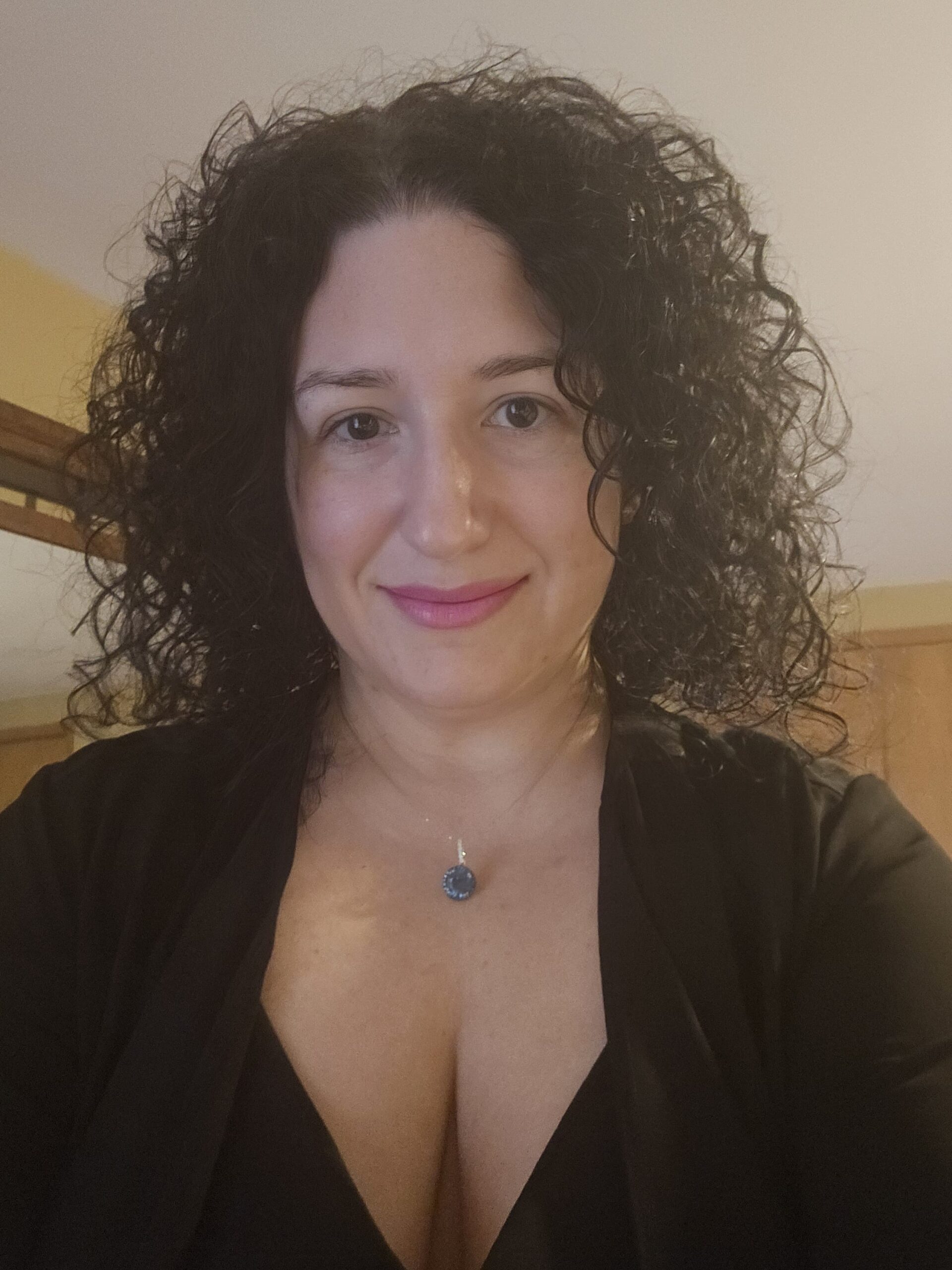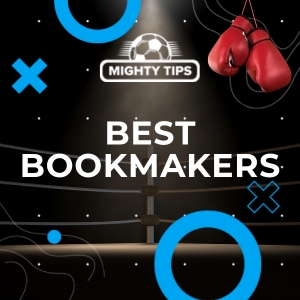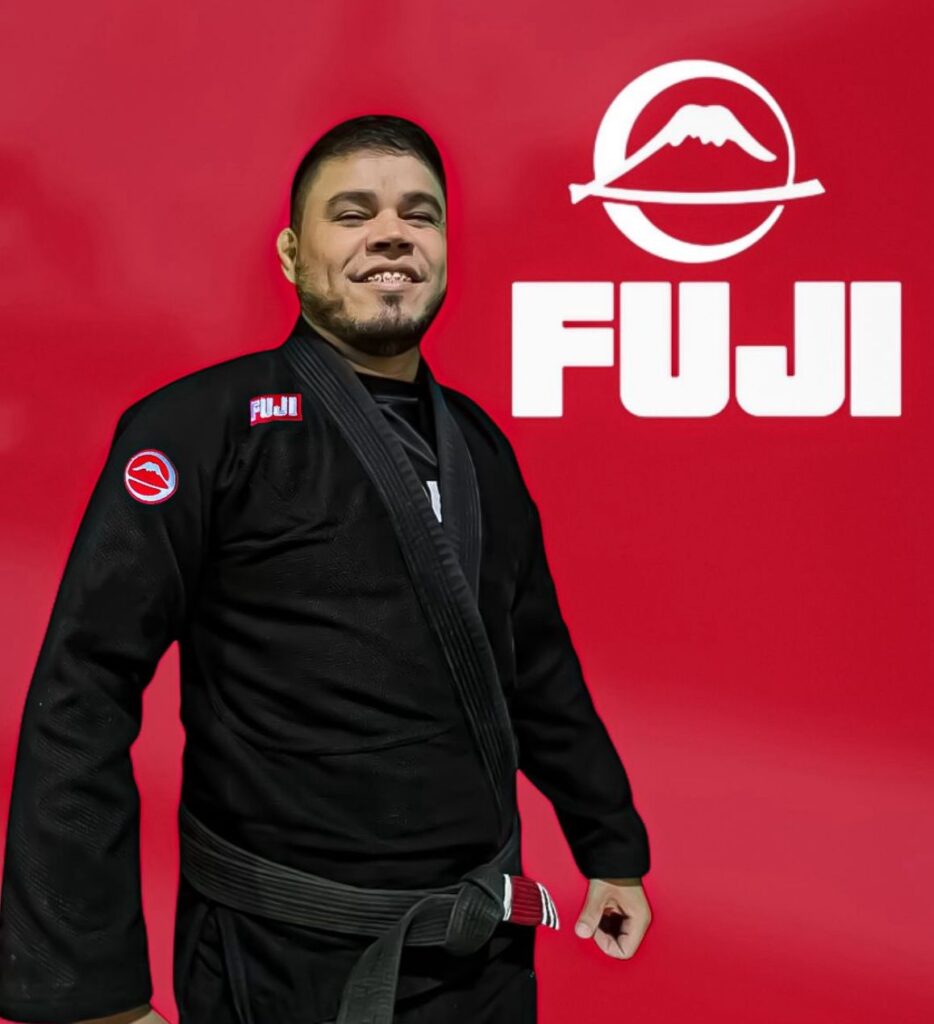Introduction
Julio Silvestre Ataide Duarte has over 20 years of experience in Brazilian Jiu-Jitsu (BJJ) and is a 3rd-degree black belt in BJJ from GFTeam school. For decades, he has devoted himself not only to improving his skills, but also to promoting Jiu-Jitsu as a tool for social transformation. Being a martial artist has taken Julio and his family around the globe. They currently reside in the United Arab Emirates. The cool thing is that Julio and his family all train in BJJ. He has taught many people the art of the sport, ranging from the military to being a coach at elite gyms.
Q & A
FightMatrix: Can you tell me about your childhood and where you grew up?
Julio Duarte: I’m adopted — I was adopted at one month old by my adoptive parents, whom I consider my real parents. I was born in the city of Macaé, but we soon moved to the capital, Rio de Janeiro. Later, when I was around 7 years old (I don’t remember exactly), we returned to Macaé, where I was raised in the Nova Holanda neighborhood until my youth.
FM: Did you have a mentor during your childhood who encouraged you to become a martial artist?
JD: Actually, I tried to play soccer, but I wasn’t successful. I never thought about practicing any combat sport. I had many friends who practiced martial arts, but I was never interested in it during my childhood.
FM: Macaé, Rio de Janeiro, Brazil, was where you began practicing BJJ in 2001. What motivated you to start training? Did you start to feel different over time? If so, how?
JD: I started training with Professor Renato Ferro in Macaé. One of the main reasons was because I was always very skinny, and I saw that all the Jiu-Jitsu practitioners were strong. Initially, I just wanted to get stronger. But over time, I realized the sport offers so much more — it goes far beyond physical strength.
FM: You have indigenous ancestry from the Amazon region. How meaningful is that to you? Did it make you a better martial artist?
JD: My biological grandparents on my mother’s side have indigenous ancestry. That means a lot to me because it’s part of our culture. They have always been very strong due to their demanding lifestyle — hunting, fishing, and farming — which requires great physical effort. And physical conditioning is very important in martial arts.
FM: How do you feel about your journey in BJJ? How has it positively impacted your life?
JD: I feel fulfilled for having contributed to the lives of many people, especially in shaping individuals of character. I’ve helped build champions for life. I believe you must be a black belt on and off the mat.
FM: All of your children practice BJJ. Has that helped them develop important attributes in life?
JD: Absolutely. Both physically and in terms of character development. They are already black belts and make a living from Jiu-Jitsu. I still don’t feel my mission is fully complete, though — I have a 6-year-old daughter. Once she becomes a black belt too, I’ll feel I’ve done my part and given them the path. From then on, it’s up to them.
FM: What have been the benefits of having a family that trains together?
JD: The biggest benefit is that we live through the sport together. We have a unique opportunity to lead a healthy and connected life as a family.
FM: How can BJJ shape someone in a positive way?
JD: BJJ can transform someone 1000%. It shapes you as a person, as a teacher, as a spouse. It teaches discipline, respect, and how to handle both victories and losses. It shows you that in life, you don’t always win — and knowing how to lose is just as important. It shapes your life in many ways.
FM: Who have been your favorite athletes to train with?
JD: I’ve trained with many great athletes. I always say that my friends are my idols, so it would be unfair to name just a few.
FM: What was your experience like in the United Arab Emirates teaching Jiu-Jitsu to the military, police, and schools?
JD: I worked at Palms Sports with the Armed Forces — it was an incredible experience. That company was one of the pioneers in teaching BJJ in the UAE and now has over 800 Jiu-Jitsu coaches across the country. I also worked at UFC gym, where I gained a lot of experience in commercial gyms with a high volume of clients. There, I had the opportunity to train with top athletes like Kaynan Duarte (4x ADCC champion, 2x IBJJF World Champion), Johnny Walker (UFC fighter), and other important names in the BJJ world.
FM: Can you talk about your role and the impact of the free social project in your community?
JD: I’m no longer directly involved, but I was the pioneer in starting a BJJ social project in my community. Through it, we helped shape many upstanding citizens and black belts. Today, the community has several social projects that support many children and young people — and that’s very rewarding for all of us.
FM: Who is your all-time favorite Brazilian Jiu-Jitsu practitioner?
JD: I have many idols in BJJ, but my favorite to watch is Rodolfo Vieira, who now fights in the UFC.
FM: You mentioned “promoting Jiu-Jitsu as a tool for social transformation.” Can you elaborate on that?
JD: When I talk about social transformation, I mean that Jiu-Jitsu can truly change a person’s life. You can make an honest living through the sport and go places you never imagined. In my case, I never thought I’d be living in Dubai — but thanks to BJJ, I’m here and able to give my family a dignified life. Unfortunately, many young people don’t get this chance and lose their way. But BJJ transforms lives!

FM: What advice would you give to someone wanting to start BJJ?
JD: My advice is: start as soon as possible — your life will change completely for the better.
FM: Is there anything else you’d like readers to know about you?
JD: You have to believe in your dreams. When I started the social project, I didn’t earn anything — in fact, I used my own money to pay for registration fees for kids who couldn’t afford it. I never had government support, but I never complained. I always did my best with what I had, and God blessed me with this opportunity. I’ve now been living in the Emirates for 10 years, breathing and living Jiu-Jitsu 24/7 — and I feel truly blessed for that.

MMA & Boxing Writer | Business Development Consultant
I have been an avid viewer of Boxing and MMA for decades. Judo is the martial art that I most admire. At different periods in my life, I have practiced Judo. This piqued my interest in MMA since 2001. I had a 25 year career in healthcare and now I am pursuing my hobby and a new venture. Now I enjoy writing about combat sports for FightMatrix.



